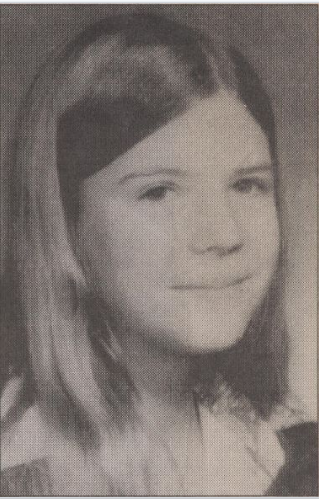
Features
Out of the Cold
Can DNA solve the 1976 murder of Rhona Margaret Duncan?
March 4, 2024 By Stephen Metelsky
 Photo credit: RCMP
Photo credit: RCMP It was a particularly warm day on July 16, 1976 in North Vancouver, B.C. Rhona Margaret Duncan, 16 years old at the time, was excited to be off for the summer holidays to enjoy time with her friends.
That evening, Rhona attended a house party on East Queens Avenue. The party was an opportunity for Rhona and her larger circle of friends to get together. The house was full that evening, with 60 teenagers in attendance.
At 1 a.m. Rhona and her boyfriend, Shawn Mapoles, decided to leave and walk home. They were accompanied by Rhona’s best friend, Marion Bogues and her boyfriend, Owen Parry. The four split into pairs when the two boys reached their homes first. Rhona and Marion continued together.
They reached Marion’s home first, where the best friends embraced and parted ways, leaving Rhona to continue the rest of her walk home alone. She still had five blocks to walk until she arrived. It was now 2:45 a.m.
At 3:00 a.m., a neighbour—who lived three doors down from the Duncan family—heard a commotion outside. It was the loud, audible sounds of a male and female arguing. She was concerned enough that she woke up her husband. The husband decided to inquire further. Once he was outside, the neighbour detected the argument emanating from the back of a residence a few doors down.
The neighbour yelled from his backyard towards the source of the loud argument. He didn’t get a reply, but it quickly went quiet. He waited for a while in his yard, listening to see if the arguing would continue. It did not, so the neighbour retreated to his residence.
At 9:00 a.m. the next morning, the body of Rhona Margaret Duncan was discovered. She had been murdered sometime during the early morning hours, just steps away from her home.
Her partially clad body was found in some tall brush close to a neighbour’s garage. Police were called, and the crime scene was taped off. A forensic post-mortem examination was conducted to determine the criminal cause of death. The results concluded the cause had been manual strangulation. She had also been sexually assaulted by an unknown perpetrator.
The advancements in genetic genealogy have led to some high-profile cold cases being solved by Canadian police.
Police worked veraciously to investigate this tragic murder in North Vancouver. Several interviews were conducted with all of Duncan’s close friends and outer social circle, along with several polygraph tests – yet the case remained unsolved. The file grew colder as the years passed.
Fast forward to 1998 – 22 years after Rhona Margaret Duncan’s murder. Although the case remained cold and unsolved, advancements in science and forensic examination had advanced significantly. The original RCMP investigators were able to recover DNA evidence from the crime scene, investigative due diligence that would pay off more than two decades later.
When investigators tested the DNA evidence in the 1990s, they received a break in the cold case. A DNA profile was established – DNA that was linked to Duncan’s unknown killer. During the initial investigation, RCMP investigators had an exhaustive list of 172 males, comprised of Duncan’s friends, some acquaintances, persons of interest and suspects. Now that a DNA profile had been identified, police obtained DNA samples from all these males in the hopes one would match the DNA left behind by the killer. None of the samples matched.
Police were able to remove several ‘higher priority’ subjects from their initial persons of interest list, confident none of them were responsible for the heinous murder. Some of the other subjects have either died or police were unable to locate them.
Rhona’s case file is 1976-18404. Her homicide is still an open, unsolved cold case.
The advancements in genetic genealogy have led to some high-profile cold cases being solved by Canadian police. This may be the next logical investigative step to identify the person or persons responsible for the murder of Rhona Margaret Duncan in 1976 and to bring them to justice for this heinous crime.
Rhona’s high school friends are still trying to solve who was responsible for the murder of their friend. Her family and friends are seeking justice and closure in a case that is nearing almost half a century – dormant and unsolved.
The suspect’s DNA in this case may hold the key to breaking this cold case wide open.
If you have information or a tip about the unsolved homicide of Rhona Margaret Duncan, contact the North Vancouver RCMP Detachment at 604-985-1311.
If you wish to remain anonymous, call Crime Stoppers at 1-800-222-8477 or visit the website: solvecrime.ca.
Stephen Metelsky, M.A., is an author, professor and (ret.) sergeant. Follow him on X @StephenMetelsky.
Print this page